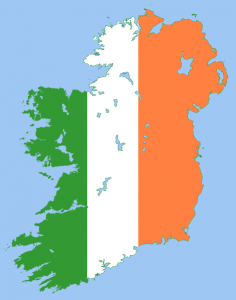By Sarah-Claire Jordan
 Though only one of the languages spoken in Ireland today actually originated there, there are more than a few languages spoken there thanks to immigration and proximity to other countries. English is, of course, the first language of most of the people of Ireland, with its own Irish peculiarities added. Beyond that, there are a few languages that are unique to Ireland that may not be getting the attention they deserve.
Though only one of the languages spoken in Ireland today actually originated there, there are more than a few languages spoken there thanks to immigration and proximity to other countries. English is, of course, the first language of most of the people of Ireland, with its own Irish peculiarities added. Beyond that, there are a few languages that are unique to Ireland that may not be getting the attention they deserve.
Here are three of the languages that are unique to Ireland:
1. Irish
As the name implies, this language has its origins in the land that we know today as Ireland. It evolved from Primitive Irish, which was brought over by Celtic speakers. This then evolved into Old Irish, and then Middle Irish. Middle Irish was spoken in Scotland and the Isle of Man as well, until it split into Irish, Scottish Gaelic, and Manx. Irish is the official and national language of the Republic of Ireland, with English being another official language. About 35% of people use Irish every day, and one third of them live in Gaeltacht, or Irish-speaking, areas. However, only about 10% of speakers in the Republic of Ireland could be considered fluent in Irish. Though the number of speakers has increased, not enough are using it daily, and are more likely to be “passive speakers”, who listen to Irish radio, watch Irish shows, and read Irish magazines and papers.
2. Shelta
Shelta is an extremely interesting language that is spoken by Irish Travellers. It is called Cant or “the Cant” by outsiders, and “Gammon” by speakers; Shelta is a name given by linguists. It has many aspects of a cryptolect, or a language devised as a way to keep anyone who doesn’t speak it out of the loop. Since those who do speak it are hard to keep track of as they travel so much, the exact number of Shelta speakers is hard to determine. In the Republic of Ireland, there could be around 6,000, but it is just an estimate. The two languages that Shelta draws from the most are English (Irish English) and Irish. A small portion of the vocabulary these days also comes from Romani, the language of the Romani (gypsy) people.
3. Ulster Scots
This is an interesting language, as it is a dialect of Scots, a language that originated in Scotland, that came to be spoken in Ulster, an area of Ireland. The Scots language arrived in Ulster in the early 1600s, and from then on was influenced by the Irish English and Irish spoken in the area. Originally, it was called “Scotch-Irish,”, but the name was changed soon after thanks to some researchers. The treatment of Ulster Scots is even more interesting: some linguists consider it a variety of Scots, while others treat it like a dialect of English. Either way, there is no denying the fact that those who speak it strongly identify with it as their native language.



